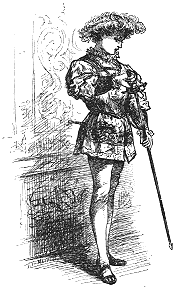Immigration into Britain

 A few years ago, there was an advertisement on a billboard close to where I live. It advertised a company called Western Union. You probably know about Western Union. Western Union sends money from one country to another. If you want to send money to your brother in South Africa, for example, you can go to a Western Union office in England and pay in some money. Then your brother can go to a Western Union office in South Africa, and collect the money which you have sent.
A few years ago, there was an advertisement on a billboard close to where I live. It advertised a company called Western Union. You probably know about Western Union. Western Union sends money from one country to another. If you want to send money to your brother in South Africa, for example, you can go to a Western Union office in England and pay in some money. Then your brother can go to a Western Union office in South Africa, and collect the money which you have sent. The unusual thing about this advertisement however was the language in which it was written. It was in Polish. It was aimed at Polish people who work in Britain, and who want to send money back to their families in Poland.
And last year, the local paper in Reading, a town close to London, printed one of its editions in Polish, for the benefit of the many Polish people who now live and work in Reading. You can see a photo of the paper on the website and on your iPod screens.
Since Poland joined the European Union in 2004, a lot of Polish people have come to this country. We sometimes joke in Britain about how all plumbers nowdays seem to be from Poland. And people have come from other East European countries as well. For example, I do not think that there are any buses still running in Lithuania, because there are so many Lithuanian bus drivers here in Birmingham.
Of course, immigration into Britain is not new. Over the last 50 years, a lot of immigrants have arrived here from for example Pakistan, India and the West Indies. But large scale immigration from Eastern Europe is new – it has been made possible by the European Union rules which say that people must be able to move freely throughout the Union and live and work in any EU member country.
You will find that many people in England do not have a positive view of immigration or of immigrants. They say that they take the jobs of British workers; and that they are a burden on our health, welfare and education systems. Some people say that immigrants are responsible for a lot of crime.
But a government report, published this week, takes a very different view. It says that in 2006, 12.5% of the workforce in this country were immigrants. Immigrants have, on average, higher skills than people in similar jobs who were born in Britain. They earn more as well, and so pay more in taxes. Many employers say that immigrant workers are more reliable, and are willing to work longer hours. Some sectors of the economy like agriculture and hotels and restaurants depend heavily on immigrant labour. The report concludes that, altogether, immigration into Britain contributes £6 billion a year to the British economy.
Of course, there are problems too. In Britain, house prices and rents are very high, and in some places immigration has pushed prices and rents even higher. Some immigrants have to live in poor housing, and are exploited by unscrupulous landlords. Other immigrants are employed by labour agencies or “gangmasters”, and some of these have a bad record for exploiting their workers. And there can be problems too when schools have to cope with a lot of pupils who do not speak English (though my experience is that children learn English very fast – it is adults who find new languages a problem).
The overall picture painted by the report is that immigration has greatly benefited Britain and the British economy. I guess that some of you who listen to my podcasts have come to Britain as immigrants, or you have worked in Britain and have now returned to your own countries. What do you think? Please post a comment on the podcast website saying what you like about living in Britain, and what you do not like.
Download MP3 (5:10min, 2MB)
























